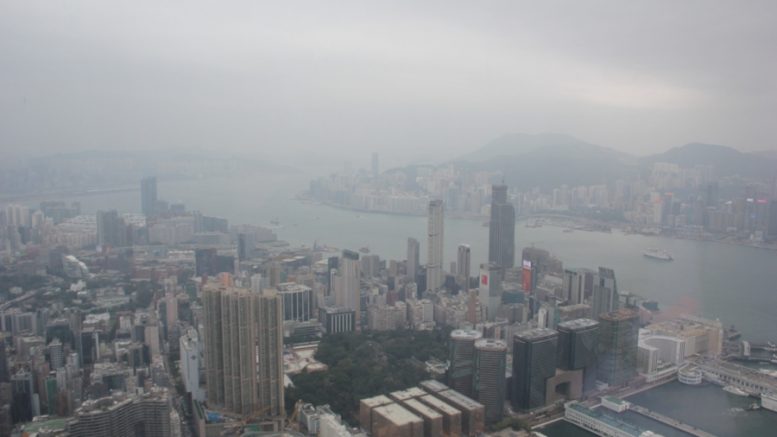Chris Yeung
In sharp contrast with the Government’s bullish sentiment, Victor Li Tzar-kuoi, elder son of Asia’s richest man Li Ka-shing, was in a no-nonsense mood when he urged the Government to do its utmost to maintain the city’s status as an international financial hub.
“There are only a few [international financial centres], and Hong Kong is one of them. It is hard-won. We must not lose this place,” said Victor Li, chairman of CK Hutchison and CK Asset at a post-results press conference on Thursday.
He spoke two days after the Legislative Council passed a new national security bill into law, commonly known as Article 23 legislation, by 89 to zero.
The swift passage has drawn strong criticism from the United States, the United Kingdom and the European Union, saying the law would further erode civic rights and freedoms. The US government said they would assess the impacts of the law on US citizens and US interests in the city.
Li was responding to a question from a reporter about his view on the overall economy of Hong Kong in recent years. There was no mention of Article 23, both in the question and the answer.
But coming on the heels of the enactment of another law on national security, Li’s emphasis on the vital importance of Hong Kong’s status as an international financial centre is indicative of the difficult challenges and looming uncertainties faced by the city.
Like it or not, the new law and the quick salvos fired by leading Western countries against it has deepened the uncertainty that has shrouded Hong Kong since the Hong Kong national security law came into effect in July 2020.
The 2020-enacted law, which mainly covers subversion and colluding with foreign forces, has proved to be a powerful legal weapon in clamping down forces that are deemed as “opposing China, disrupting Hong Kong.” Importantly, it has caused a chilling effect across the city.
Covering a broader range of security-related offences including external interference, the new law, which took effect on Saturday (23/3), has unleashed fresh uncertainties about the legal risks of ties and collaborations between individuals and groups with those outside Hong Kong.
It could be about research and surveys and exchanges between institutions in a wide range of fields such as business and finance, academia and various professions in areas such as law and medicine.
Anything that is deemed as national security-related could become sensitive and uncertain.
Haunted by the severity of the penalties of the security offences, individuals, corporations and institutions will have to make a quick inspection of their deeds and words to assess the risk.
Understandably, the chilly effect that has become widespread in different aspects of life since 2020 looks set to grow further. The practice of self-censorship could develop into a culture embedded in the minds of Hongkongers.
Just as the 2020 national security law, the impacts of the new legislation could be far more drastic and all-encompassing, casting a long shadow over the role and status of Hong Kong as an international financial centre.
From a refuge for those who fled the mainland decades ago to a modern cosmopolitan city, the city’s prosperity and stability, free lifestyles that were built on such fundamentals as rule of law and freedoms have not come easy.
Doubts and fears about whether the story of Hong Kong success is nearing the end in the wake of the seismic changes since 2019 are engulfing the city.
Two years before the 1997 handover, Fortune magazine published a cover story proclaiming “The Death of Hong Kong.” Louis Kraar, the writer, wrote that Hong Kong’s role as a vibrant international commercial and financial hub would come to an end. The magazine later admitted they were wrong. Beginning from 2014, more people found Fortune may be right.
Last week saw two pieces of seemingly totally unrelated news.
Story one was the elation and jubilation erupted at the Legislative Council when Article 23 was passed by a vote of 89 to zero on Tuesday. Story two featured a light art installation in Hong Kong’s East Kowloon ignited a storm of controversy online for its “funeral vibe”.
The flower bed at a price tag of HK$500,000 went viral on social media as the mainstream media gave massive coverage of the passage of Article 23 legislation.
That cannot be a more intriguing coincidence and contrast. The ridicule of netizens shows the sea of jitters and unease and feeling of doom and gloom in some quarters of the society.
Two decades ago, facts proved the 1997 doomsayers wrong, at least for then. This time, it will be a far more difficult task for the Government to prove doubters wrong in view of the external geopolitical changes and the fact that Hong Kong is no longer what it was in many aspects.
This article was first published on Green Bean Facebook


Be the first to comment on "History in the making or is nearing its end"